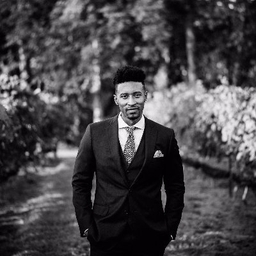
Julian Hayes II
Contributor at Freelance
Founder at Executive Health | Forbes CEO Network Columnist | Optimize today, lead tomorrow
Articles
-
1 week ago |
forbes.com | Julian Hayes II
Productivity and mental health are taking a hit for three reasons. gettyNumbers never lie: it's why CEOs obsess over revenue targets, operational metrics, quarterly growth, and more. Yet beneath the spreadsheets and data dashboards lies an invisible crisis quietly eroding organizational strength and productivity: the deteriorating mental health and emotional resilience of today's workforce.
-
1 week ago |
forbesjapan.com | Julian Hayes II
最高経営責任者(CEO)をはじめとする組織のリーダーたちは、チーム全体の士気や生産性、ウェルビーイングの向上に絶えず目を配っているが、職場の対立は依然として企業文化と収益を静かに損なっている。職場の対立についてのCPPの報告書『Workplace Conflict and How Businesses Can Harness It to Thrive』によると、米国の労働者は1週間あたり平均2.8時間を対立の処理に費やしており、生産性の損失額は3590億ドル(約52兆円)に上る。この数字は2008年のものだ。今日の二極化した社会情勢では実際のコストははるかに多いだろう。 さらに憂慮すべきことに、労働者の約6割が基本的な対立解決トレーニングを受けたことがない。にもかかわらず、多くの企業はいまだに対立を緊急度の低い問題、あるいは対人関係での不愉快な出来事として扱っており、業績や文化に悪影響を及ぼし得る主要な脅威として扱っていない。心理学者で米テキサスA&M大学の教授、そして『How to Get Along With...
-
1 week ago |
forbes.com | Julian Hayes II
Andy Jassy's message contains a beneficial reminder. Getty Images for Amazon Web Services Amazon CEO Andy Jassy recently shared a message with employees about the far-reaching impact of generative AI. While it’s no surprise that AI is embedded across every business unit at Amazon, a small text block, in particular, stood out to many people.
-
1 week ago |
forbes.com | Julian Hayes II
Environment plays a key role in burnout mitigation. gettyThere are many workplace issues top of mind for leaders today. None more so than the pervasive and persistent issue of burnout. It rarely shows up dramatically and isn't confined to one specific dimension. One person may experience it physically, another emotionally, while others may experience it spiritually or mentally.
-
2 weeks ago |
forbesargentina.com | Amura CMS |Julian Hayes II
Julian Hayes II Colaborador Qué es OODA, la sigla con la que el ejecutivo dirige la entidad que tiene el mayor impacto en las finanzas del mundo entero. Cuando Jamie Dimon, director ejecutivo de JPMorgan Chase, habló sobre los líderes realmente excepcionales, no nombró títulos, cargos ni habilidades técnicas. En cambio, mencionó a Serena Williams, Tom Brady y Stephen Curry. "Miren cómo se entrenan, lo que hacen para ser tan buenos", dijo.
Try JournoFinder For Free
Search and contact over 1M+ journalist profiles, browse 100M+ articles, and unlock powerful PR tools.
Start Your 7-Day Free Trial →X (formerly Twitter)
- Followers
- 1K
- Tweets
- 1K
- DMs Open
- Yes